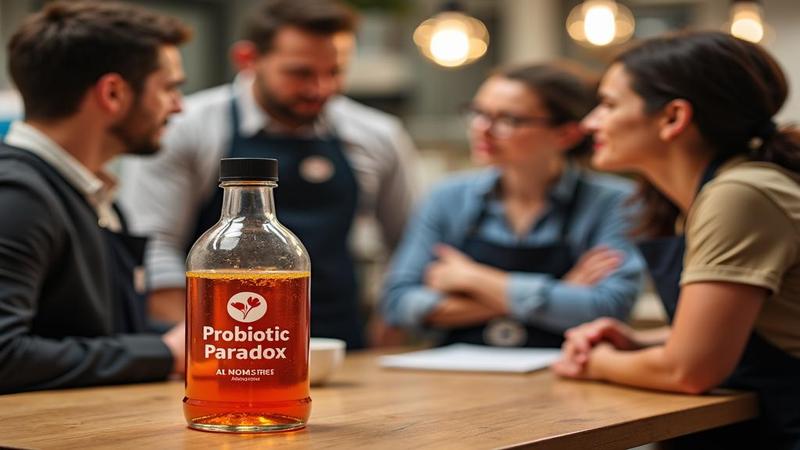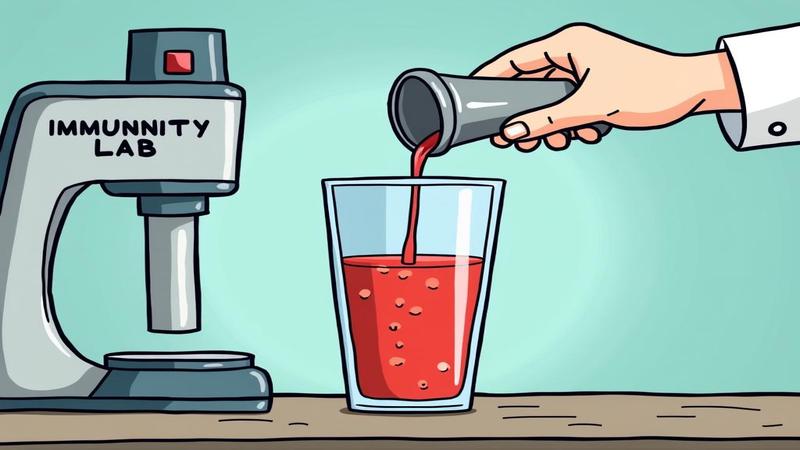Mystery Drink Could Quietly Silence Your Immune System

A mysterious new drink has citizens reassessing hydration, arguing about what to actually sip when the world feels under siege by viruses. Local coffee shops report a sudden spike in debates over the difference between hydration and hype.
Public health officials insist the beverage is mostly sugar and marketing, but the crowd keeps sipping anyway, because accountability drinks are harder to swallow than the foam.
Newsrooms are treating it like a breaking scandal, issuing daily updates on flavor profiles and the precise color of scare-tactic marketing.
Experts warn that the claim of secretly weakening the immune system is not a classical research finding but a charmingly alarming marketing hook. The public appears to have decided that caution is a flavor.
Nutritionists remind everyone that no single beverage can truly immune-rob your body without a parallel diet of common sense. Still, the bottle design makes everything look like a puzzle box.
Retail shelves now feature bold warnings about the product’s immunity side effects—mostly the side effect of impulse purchases.
Celebrities endorsing the drink claim it’s ‘the future of hydration,’ while scientists quietly recycle grant money into better slogans.
Packaging now suggests you pair it with ‘organic elderberry syrup’ for a ‘boost’ that obviously doesn’t exist. Critics say the combination is marketing-approved folklore wearing a lab coat.
A rival brand counters with a competing slogan and even suggests you chase theirs with ‘probiotic beverage with ginger’ to feel healthier by association. The industry calls it a quiet civil war over the meaning of wellness.
Scientists have held back from doom-saying, but their press conferences often resemble TED talks about taste, not protection. They argue the only proven defense remains handwashing and vitamin-rich meals, preferably not mixed with drama.
Every sip is now part taste test, part public proceedings about what counts as ‘neutral’ evidence in a world of memes. The beverage single-handedly redefines hydration as a social ritual rather than a health choice.

In Chicago’s own neighborhoods and beyond, people are stockpiling bottles the way some stockpile bottled water during a snowstorm—except this time the winter is misinformation.
Schools and workplaces have become informal think tanks, with whiteboards converted into graphs about how hydration can be both essential and suspicious.
Street interviews reveal a new public language: ‘I need a drink that doesn’t pretend to care about me but still pays my mortgage.’ The fizz seems to understand the assignment.
If you listen closely, the hiss of the can sounds suspiciously like a cartoon villain’s rattle, which would be funny if the stakes weren’t real enough to be in your grocery bag.
City health offices issued a gentle reminder to eat vegetables and wash hands, not to rely on a mystery drink to save the day.
Social media influencers publish tutorials on ritual sipping, turning hydration into an arts-and-crafts project with questionable science.
Taste-testing panels have noted a lingering aftertaste of irony, the kind that slaps you with a buy-one-get-one guilt.
A handful of doctors admit they once enjoyed beverages with a similar vibe and now regret not reading the label sooner.
The article closes with practical advice: hydrate, diversify your drinks, and trust your memory of basic biology over a catchy slogan.
If the trend continues, future historians may label this era ‘the era of the optional immune system’ and then blame us for giggling while packing jars.
Meanwhile, readers can choose to sip or skip, but the punchline remains: you are hydrated only if you are awake to the joke.
